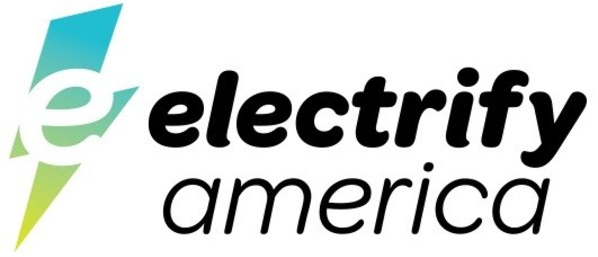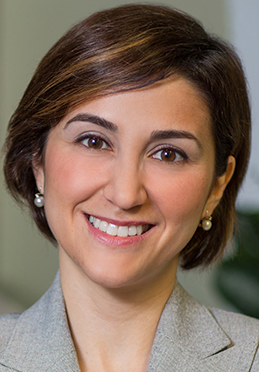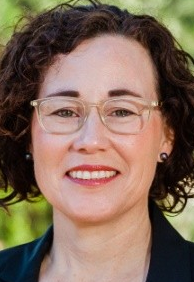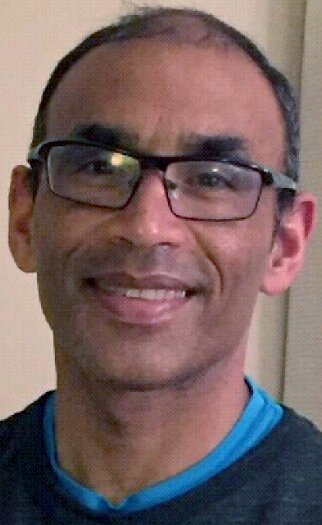Tuesday, January 26, 2021
Note: Conference is in Central Standard Time (CST, UTC -6)
8:30 - 9:00 am CST
Opening Address: Getting to 20 Million EVs by 2030
9:00 - 9:15 am CST
Break
9:15 - 10:45 am CST
The Role of Electric Utilities and Charging Companies in Preparing for an EV Future
A recent
Brattle study concluded that an investment in the range of $75-125 billion will be needed across the U.S. electric power sector supply chain by 2030 to serve 20 million EVs. This study acknowledged the importance of "all-hands on deck" approach to driving infrastructure investments and importance of utilities and private infrastructure companies leveraging each other's strengths to help drive EV adoption and achieve ambitious EV targets. At the same time, charging of the EV fleet will need to be managed through EV TOU rates and active managed charging programs to minimize adverse impacts on the grid. In this panel, we will hear from utility experts and charging companies on their initiatives to advance charging infrastructure investments and manage the impact of the EV load on system peaks and grid reliability. This panel will also identify top three barriers and potential solutions to "unstuck" the U.S. EV market from the stagnant growth mode and bring its growth on par with that in Europe.

|
|

|
|
|
Anthony HarrisonHead of Utility Partnerships - North America ChargePoint
profile
|
|

|
|
|
Robert BarrosaSenior Director, Sales, Business Development and Marketing Electrify America
profile
|
|

|
|
|
Eamonn Ulery
Product Development Manager
Salt River Project
|
|
10:45 - 11:15 am CST
Break
11:15 - 12:45 pm CST
Federal, State and Municipal Perspectives on EVs and Charging Infrastructure
Regulatory and policy issues surrounding EV charging are a key factor in the future progress of infrastructure deployment. Issues including hardware compatibility requirements, universally available payment modes, accessibility standards, subsidies and other
considerations need to be addressed in order to foster continued EV growth. This panel of experts will discuss current developments from a federal, state and municipal perspective. Challenges and opportunities for moving forward will
be addressed, with the intent of sharing government perspectives on the evolving ecosystem of EVs and charging infrastructure.

|
|
|
John ZhangDirector/Chief Engineer, Electrical and Innovation Technology City of Chicago
profile
|
|
|
|
|
|
Maria S. BocanegraCommissioner Illinois Commerce Commission
profile
|
|

|
|
|
Kate TomfordSenior Analyst, Energy Chicago Transit Authority (CTA)
profile
|
|

|
|
|
Yan (Joann) ZhouGroup Manager, Vehicle and Energy Technology & Mobility Analysis Argonne National Laboratory
profile
|
|
12:45 - 1:30 pm CST
Break
1:30 - 2:00 pm CST
Key Elements of a Business Case for Transportation Electrification
Transportation electrification continues to expand as the market for EVs broaden, prices drop, and more corporate clients make commitments to electrify fleets. Electric utilities can play an important role in supporting customer choice, enabling EV infrastructure, and maintaining grid reliability under growing EV adoption. As a result, utilities at all levels of EV maturity are addressing the business case for EV programs. The speakers in this session will explore the key elements of a business case for transportation electrification with a focus on fleets (commercial, municipal, public transit, school bus) adoption.

|
|
|
Meghan WeinmanManager, New Products & Services Puget Sound Energy
profile
|
|

|
|
|
Shelly HagermanPrincipal West Monroe Partners
profile
|
|
2:00 - 2:30 pm CST
EV Customer Engagement
As utility EV programs and charging networks grow across the country, customer engagement, education, and experience are critical to support expanded EV adoption for both residential as well as C&I sectors. Methods vary, including traditional marketing campaigns, web EV portals, alternative rate design, and tools to help customers calculate savings when going electric. This panel of EV program and charging network experts will provide their diverse experience and lessons learned on EV customer engagement and address a range of topics.
|
Moderator: Shelly Hagerman, Principal, West Monroe Partners
profile
|

|
|
|
Lisa ArellanesSenior Manager, eMobility Business Development & Partnerships Southern California Edison
profile
|
|

|
|
|
Jigar ShahManager, Distributed Energy and Grid Services Electrify America
profile
|
|
2:30 - 3:00 pm CST
Break
3:00 - 3:30 pm
Transactive Solution for Charge Capacity Distribution
As electric vehicles penetrate the consumer market there is heightened probability that regional electric utilities or local premises can be burdened by the energy needs of charging plug-in vehicles. An EV charging management system needs to consider curtailment strategies such that the distribution of energy/capacity is delegated to EV drivers adequately. There are many emerging smart charging management protocols and methodologies, but none of them can adequately communicate driver urgency. This presentation will disclose a transactive framework whereby EV drivers and a centralized dispatch system can coordinate EV charging consumption that aligns with individual driver urgency.
Key Points:
- The pros and cons of emerging EV smart charge management solutions
- Overview of a transactive approach and the various actors
- Demonstration execution and results
- Future implications of a transactive approach

|
|
|
Daniel DobrzynskiElectrical Engineer, Advanced Mobility and Grid Integration Technology Team Argonne National Laboratory
profile
|
|
3:30 - 4:00 pm
Making Public EV Charging Infrastructure Investments Go Further
There are over 110 000 public charging stations in North America. Each month, this number increases. All signs point to the electrification of transportation. So, how can utilities and governments ensure that their investments in public EV charging echo this shift in mobility?
This presentation will provide real-life insights into developing a sound EV strategy. Using from data ChargeHub, the speaker will share best practices to keep in mind as public charging infrastructure is developed. These suggestions are inspired by the actions of forward-thinking utilities and governments, which ChargeHub has had the privilege of assisting with data and strategic advice over the last few years. Done right, EVs prove to be good for utilities, their ratepayers, and all citizens. Here's how.

|
|
|
Benoit (Ben) MarcouxExecutive Advisor ChargeHub | Mogile Technologies Inc.
profile
|
|
4:00 - 4:15 pm CST
Break
4:15 - 5:15 pm
Building a Mobility Ecosystem: Transportation in the Clean Energy Future
The transportation and mobility landscape is changing rapidly with the advent of electric vehicles and non-traditional mobility options. At the same time, the energy system is undergoing a fundamental transformation toward a more decentralized, dynamic, and interconnected paradigm. The need to integrate electric vehicle into grid systems creates new challenges and opportunities for utilities, technology companies, and mobility service providers. This panel brings together industry experts to discuss the future of mobility and transportation, with a focus on solutions being deployed today to make that future a reality.

|
|
|
Sam AbuelsamidPrincipal Research Analyst Guidehouse Insights
profile
|
|

|
|
|
Elise BenoitVice President, Marketing, e-Mobility Enel X North America
profile
|
|

|
|
|
Ram AmbatipudiVice President, Business Development Energy/Utilities Sector EV Connect
profile
|
|

|
|
|
Muneeb ShahHead of Global -Trade, Supply Chain and Energy IBU R3
profile
|
|

|
|
|
Devanish PaulCEO and Founder BluWave-ai
profile
|
|








































